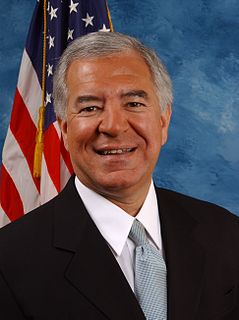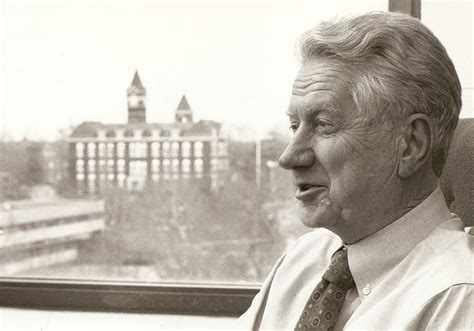A Quote by Nick Rahall
I believe that the Framers of the Constitution made their intent clear when they wrote the First Amendment. I believe they wanted to keep the new government from endorsing one religion over another, not erase the public consciousness or common faith.
Related Quotes
The Framers of the First Amendment were not concerned with preventing government from abridging their freedom to speak about crops and cockfighting, or with protecting the expressive activity of topless dancers, which of late has found some shelter under the First Amendment. Rather, the Framers cherished unabridged freedom of political communication.
The first phrase of the First Amendment spoke to the freedom uppermost in Jefferson's mind when it provided that, 'Congress shall make no law respecting an establishment of religion, or prohibiting the free exercise thereof.' Here a double guarantee could be found: first, that government would do nothing to give official endorsement to a religion or to set one faith above another; second, that government would do nothing to inhibit the freedom of religion.
The First Amendment...does not say that in every respect there shall be a separation of Church and State....Otherwise the state and religion would be aliens to each other - hostile, suspicious, and even unfriendly....The state may not establish a 'religion of secularism' in the sense of affirmatively opposing or showing hostility to religion, thus preferring those who believe in no religion over those who do believe.
Religion is a personal, private matter and parents, not public school officials, should decide their children's religious training. We should not have teacher-led prayers in public schools, and school officials should never favor one religion over another, or favor religion over no religion (or vice versa). I also believe that schools should not restrict students' religious liberties. The free exercise of faith is the fundamental right of every American, and that right doesn't stop at the schoolhouse door.
The First Amendment of the Constitution was not written to protect the people from religion; that amendment was written to protect religion from government tyranny. . . But now we're told our children have no right to pray in school. Nonsense. The pendulum has swung too far toward intolerance against genuine religious freedom. It is time to redress the balance.
Asked random questions about the First Amendment and how they would like to have it applied, if you believe in polls at all, the average American wants no part of it. But if you ask, 'What if we threw the Constitution away tomorrow?' the answer is 'No, that would be bad!' But living under the Constitution is another story altogether.
In the First Amendment to the Constitution, the Founders made it clear that this was not to be a sky-god nation with a national religion like that of England, from whom we had just separated. It is curious how little understood this amendment is-yes, everyone has a right to worship any god he chooses but he does not have the right to impose his beliefs on others who do not happen to share in his superstitions and taboos.
Conservatives who believe that the Constitution should be interpreted according to the plain meaning of its language and the original intent of the Framers have long been troubled by the court's decisions expanding the commerce clause to authorize Congress to regulate the most local of matters within a state's borders.
































